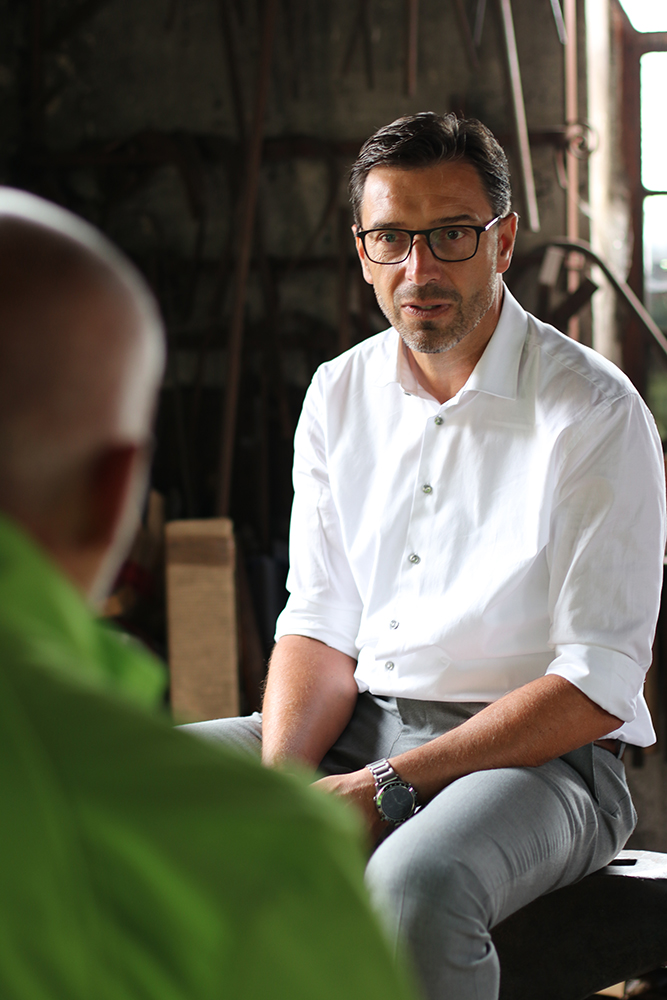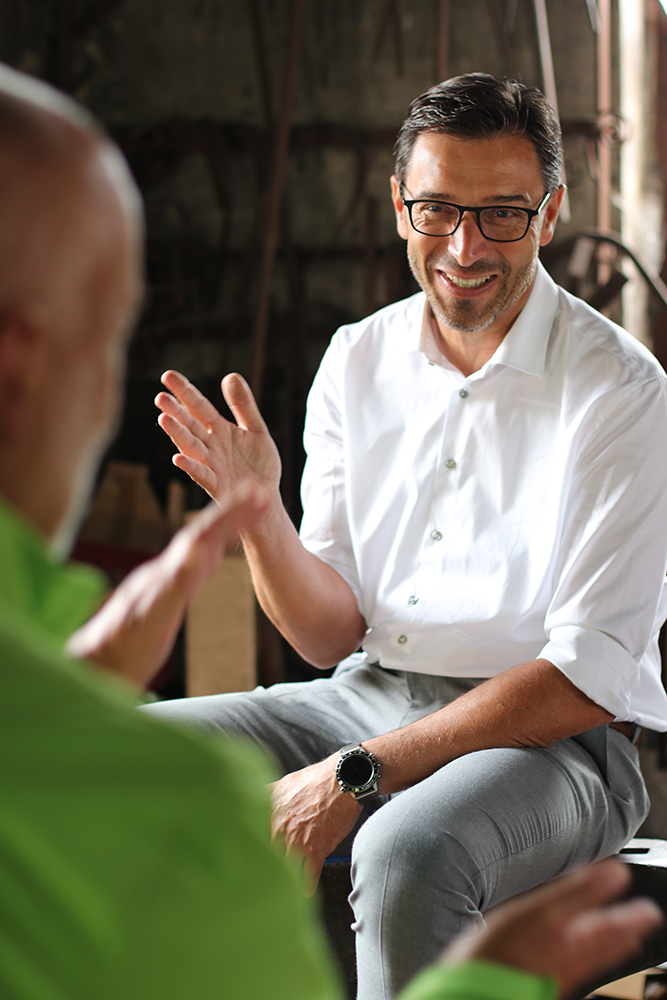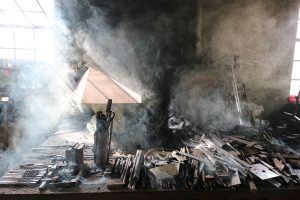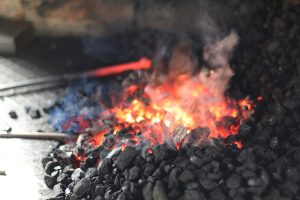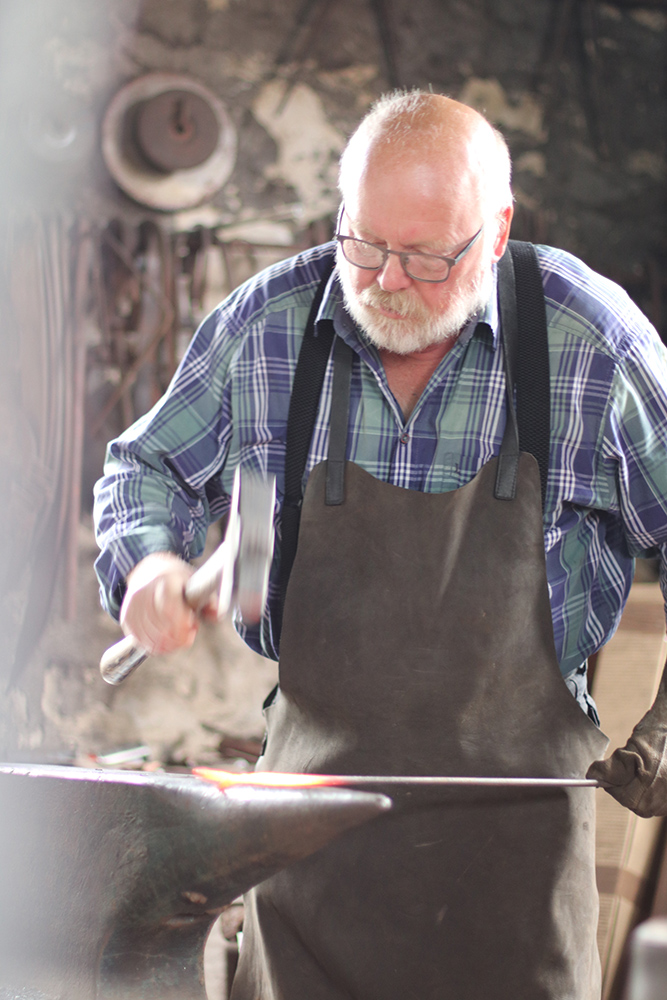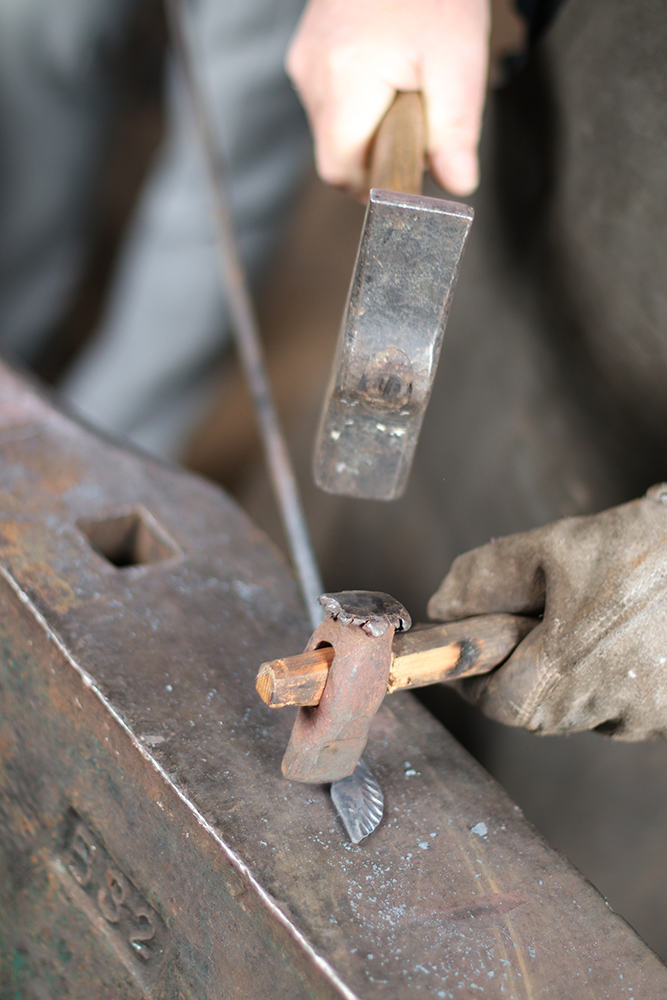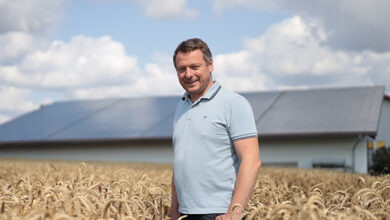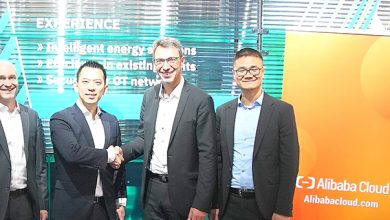Uli Leidecker is not only a new member of Phoenix Contact’s management board. He is also one of the most prominent advocates of open platforms, security architectures and a holistic approach to projects. What’s more, he can be quite a pain in the neck for his developers …
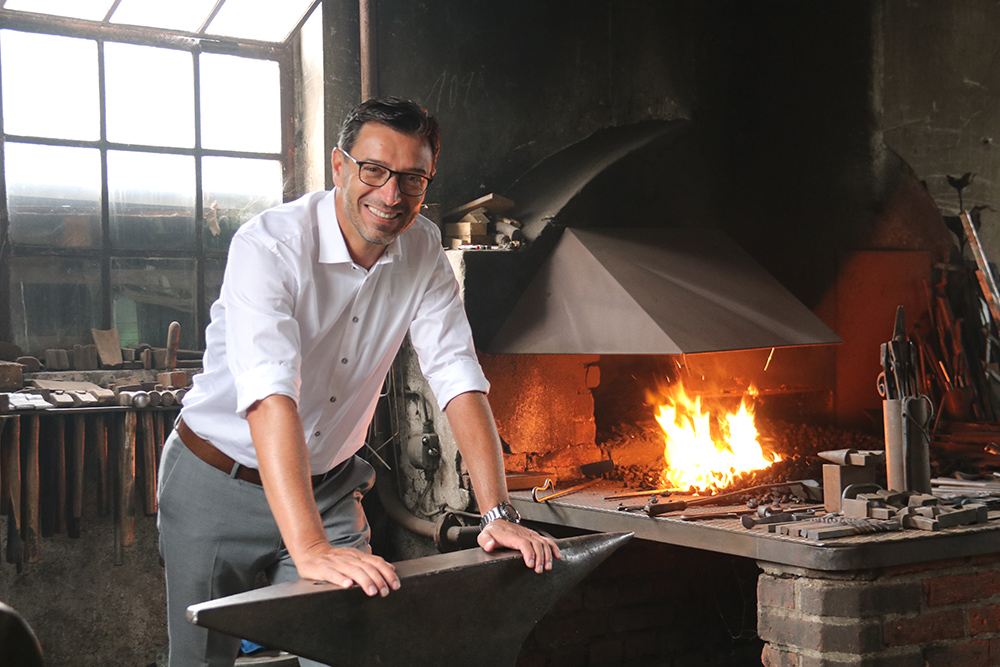
UPDATE: Mr. Leidecker, you have been with Phoenix Contact for 27 years, head of the Industrial Management Automation IMA division since 2016, and a member of the new management board since August 2020. How much do you still have your finger on the pulse of the development of Phoenix Contact?
Far too little. Far too much. On the one hand, far too little, because I started as a sales engineer in this company and that is still one of my passions. I still program, but today privately for my own home automation. And of course not at the level of our professionals in software development at Phoenix Contact.
But I understand in principle what our engineers develop. And therefore much too much, because I like to question the effort and benefit of current projects once in a while. Colleagues then roll their eyes, of course, because my skills don’t stand up to any standardization or industrial requirement.
UPDATE:You are one of the most prominent advocates when it comes to topics like PLCnext, openness and new knowledge. Does that also describe you yourself?
Absolutely! I’m a big believer in open source. This creates systems that are independent and open. The exchange protects, not the secrecy. Collaborative work also adds an important social aspect, because knowledge connects. I’m a big fan of Wikipedia, for example. The whole Wikipedia community edits it, and that’s how better systems are created for the whole of humanity.
Similarly, I also see the advantage of our PLCnext Technology. Even if there are voices that speak of a “consumerization” of industrial automation – for me this is a central element and a brand core. We are putting automation on a much broader footing and taking away its exclusive expert role. That makes it better in the long run.
UPDATE: Quasi a democratization of industrial automation? Do you have an example of this at hand?
Think of the topic of artificial intelligence. We certainly won’t be building up additional AI expertise, as we did for industrial communications, for example. Let the AI experts of this world do that. But the products and solutions that these specialists realize for industrial automation can run on the PLCnext Technology platform.
We test such solutions for compatibility and security and publish them in the PLCnext Store. And in the end, the customer who needs AI elements chooses one of the AI apps presented there. Ultimately, our expertise extends to creating platforms. This is how we ensure that as many companies as possible benefit from it.
UPDATE: Platform thinking, software products, services – how easy or difficult is it to establish this mindset in a company that has historically developed as a manufacturer of hardware?
I see myself as a driver. And it is true: A “product” like PLCnext or the distribution of “apps” in the PLCnext Store is clearly different from dealing with our terminal blocks. In all respects. Combined with the basic idea of openness to all market participants – including competitors! This openness is always a bit of a gamble. In many cases, this is unusual when you otherwise jealously protect your knowledge and products from prying eyes.
But our “Vertical Market Management” organization, introduced in 2016, also shows that we have evolved here from the pure component business. Of course, this does not happen without friction with conventional patterns of thinking and success. Particularly in large-scale projects, such as the current battery storage systems overseas, we are represented by so many individual technologies that we must not think small-small here, but with an overarching understanding. We contribute much more than just the components; we are partners for solutions and think our way into the requirements. This is something I really do advocate vehemently.
UPDATE: With this approach, the scale and public perception of individual projects is also changing.
Entrepreneurship is never risk-free. And of course, as complexity increases, so does responsibility. No matter at which point, whether with higher-value components or greater complexity. But now we are entering areas that also have a greater public impact. That will challenge us, especially in terms of resources. But in all honesty, we are prepared to take this risk because the prospects for success are correspondingly rewarding.ist niemals risikolos. Und natürlich ist es so, dass mit steigender Komplexität auch die Verantwortung steigt. Egal an welcher Stelle, ob bei höherwertigeren Komponenten oder bei größerer Komplexität. Jetzt kommen wir aber in Bereiche, die auch eine größere Öffentlichkeitswirkung haben. Das wird uns fordern, gerade in Sachen Ressourcen. Aber ganz ehrlich: Auf das Risiko lassen wir uns gezielt ein, denn die Erfolgsperspektiven sind entsprechend lohnenswert.
UPDATE: In your new role, you are also responsible for business development in the USA. After Trump, MAGA, Corona and climate change – do you still feel like the USA?
Of course (smirks)! Absolutely! Of course, as Europeans, we are united in our assessment of the last few years. They were difficult. I have not been there at all since my new responsibility, for example, simply because the entry rules did not allow that due to Corona.
But for one thing, that is changing right now. On the other hand, we are very strong in the U.S. anyway, and have our own production, logistics, and sales there. In fact, we will be sharpening these national autonomies even more in the next few years in order to be able to react even more robustly to things like political changes or threats such as pandemics.
UPDATE: How do you describe Phoenix Contact’s new role against the backdrop of the All Electric Society?
Our product range alone puts us in the fortunate position of having always contributed a great deal to climate protection. And now we are becoming the beneficiaries of a global trend, so to speak, when it is stated that all energy will be generated from electricity within a certain period of time. Of course, this fits in perfectly with our mission statement of the All Electric Society. What we need to work on more intensively in the future is our own CO2 footprint, so that we can also credibly represent our strategy externally and internally.
As a management team, we are convinced that this is the right thing to do. Also out of inner conviction. We are really well positioned in this respect and are also ahead of many others.
UPDATE: Does the new mission statement also change our role in public perception?
As a company, we don’t want to take a political position. But the All Electric Society is science-based, that’s not debatable. If climate change is denied, for example, then as an engineer I represent science. And I do so steadfastly. I can’t seriously argue that. If someone is completely inaccessible to scientific arguments, then you no longer have a platform on which to start a discourse. Not even with any administrative levels or politicians. In short, I think that we must and will also take a position more frequently to the outside world.
UPDATE: In 2023, Phoenix Contact celebrates its 100th anniversary. What does the topic of family businesses mean to you?
Friendliness, openness, partnership, trust, a positive error culture – these are family businesses. Knowing and sharing the people and the values that are important to the shareholders – that’s family.
Phoenix Contact is also an important part of my own family, not only because I work there (far too much, they think). But my family knows the company, knows my colleagues, and also knows Klaus Eisert – that is something completely different from working for maximum pay in a DAX company. Something like that shapes you, connects you and lets you work here for many years.
The interview takes place at the Schmiede Donop statt
